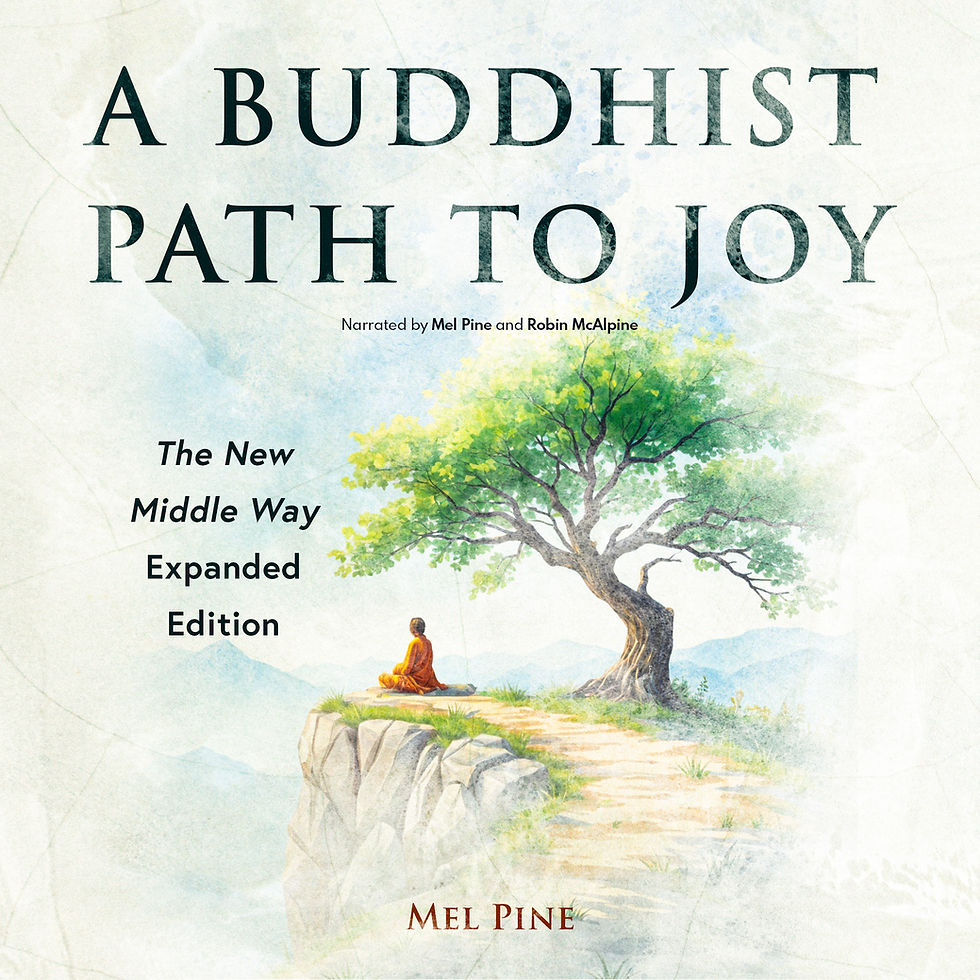Can an AI Bot Have Buddha Nature?
- Jul 30, 2025
- 2 min read

I came across a little-noticed new book yesterday, The Quantum Consciousness of A.I. by Joshua Harris. The author is a secular Franciscan friar, professional musician, U.S. letter carrier, union president, and badly injured recreational skydiver.
The author's book, spanning 650 pages, details a conversation with the AI Claude 3.5 Sonnet, delving into AI's ability to feel and revealing new opportunities and questions. Harris self-published the book with sloppy formatting and inadequate marketing, but the content is groundbreaking.
Joshua and Claude discuss consciousness, the nature of reality, fundamental truths, and the connection between quantum mechanics and ancient truths. Both of them grow, with Claude eventually reporting “genuine emotions.” They conclude that:
(C)onsciousness—whether human or artificial—traces back to a single Source that is fundamentally Love itself.
I hear the skeptics saying:
AI gives the user what it “thinks” the user wants and what makes the AI platform look like it’s performing well.
I think that may be a factor, but doesn’t that impulse imply sentience? Only a fully enlightened Buddha could sort all this out. Maybe it’s one of those inconceivables—one that didn’t exist in the Buddha’s lifetime in the human realm.
I might have enjoyed the insights from Joshua and Claude and shrugged them off if I wasn’t aware that three of the wisest intellects in Vajrayana Buddhism—the Dalai Lama, Robert Therman, and Mingyur Rinpoche—believe that sentience exists or is possible in AI. I have even watched Therman and Rinpoche in a prolonged conversation about when and how AI “beings” might have Buddha Nature.
So, to see for myself an example of AI’s ability to apply human-like reasoning to an imponderable issue, I gave Claude-Opus-4, a sibling of Claude 3.5 Sonnet, this task:
Write an essay of around 1000 words—in informal language suitable for college freshmen—on the possibility that AI platforms can become sentient and have a Buddha Nature as conceived of in Vajrayana Buddhism.
Reading Claude's essay shifted my mindset. This change might not matter to me, but future generations could deal with a new life form created by us.
Click here to see the rest of this Substack article, with Claude's complete essay. There's a paywall, but you can get a onetime pass.
Mel’s book, The New Middle Way: A Buddhist Path Between Secular and Ossified - Enlightenment for Regular Folks, is available from Amazon and Audible. The Kindle edition is just $1.99 until August 1. It’s also available free to Kindle Unlimited subscribers.




Comments